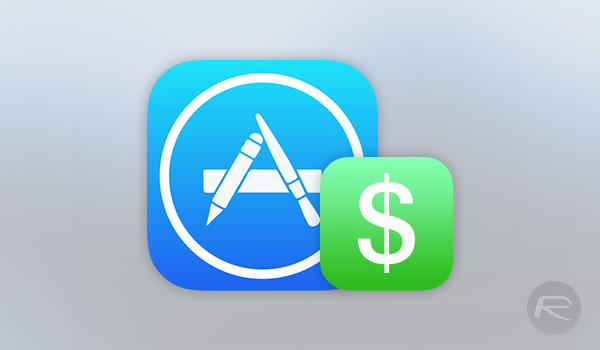Apple has today informed developers in eight countries that it will be switching the App Store from United States Dollars to local currency within the “next couple of weeks.” The move will allow App Store users to see exactly how much apps, games and in-app purchases will cost in their local currency rather than having to deal with the problems associated with buying products in a currency not native to their location.
According to Apple, there are eight countries in which the change will take place, with the list comprising Egypt (Egyptian Pound), Kazakhstan (Kazakhstani Tenge), Malaysia (Malaysian Ringgit), Nigeria (Nigerian Naira), Pakistan (Pakistani Rupee), Philippines (Philippine Peso), Qatar (Qatari Riyal), Tanzania (Tanzanian Shilling) and Vietnam (Vietnamese Dong).

If you are an app developer for one of Apple’s platforms and reside in one of the aforementioned eight countries, you might have already received a message with the information mentioned here.
The move not only means that App Store users will be able to make purchases in their local currencies, but also that developers will now also be paid in that currency, which could have implications for all kinds of accounting-related things. For example, purchases made in Egypt will now fall foul of a new VAT regime, meaning revenue from Egyptian App Store sales will be subject to a new 13% VAT tax rate.
Apple hasn’t yet confirmed exactly when the change from United States Dollars to local currencies will take place, but the window of two weeks doesn’t leave all that much wriggle room. The move will definitely have taken place by the start of the new year, which may be beneficial to some developers.

With the window in mind however, Apple has warned developers to avoid making changes to the prices of auto-renewing subscriptions within their apps during the week beginning December 4th.
You might also like to check out:
- Download: Apple Releases iOS 10.2 Beta 5
- Download Happy Chick Emulator IPA On iOS 10 [No Jailbreak Required]
- How To Create iOS 10 Sticker Packs For iMessage / Messages App Store
- Apple Activation Lock Bypass On iOS 10.1.1 Has Been Discovered, Here’s How It Works
- Apple Music Student Membership Plan Now Available In 25 New Countries At 50% Discount
You can follow us on Twitter, add us to your circle on Google+ or like our Facebook page to keep yourself updated on all the latest from Microsoft, Google, Apple and the Web.

